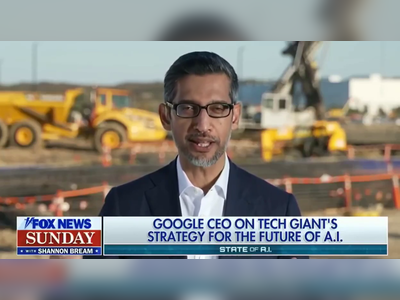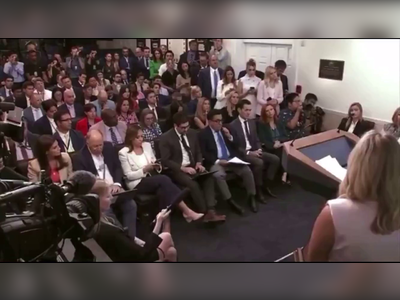
EU is eyeing tough rules for ChatGPT. What would regulation look like?
An EU official has said proposed rules regulating artificial intelligence (AI) will tackle concerns around the risks of products like ChatGPT.
Thierry Breton, the European Commissioner for the Internal Market, told Reuters the sudden rise of popularity of applications like ChatGPT and the associated risks underscore the urgent need for rules to be established.
"As showcased by ChatGPT, AI solutions can offer great opportunities for businesses and citizens, but can also pose risks. This is why we need a solid regulatory framework to ensure trustworthy AI based on high-quality data," he told Reuters in written comments.
They were the first official comments on ChatGPT from a senior EU official. Breton and his colleagues in the Commission are currently working with the European Council and Parliament on what will be the first legal framework on AI.
Launched just over two months ago, ChatGPT has ushered in an explosion of interest in AI and the uses it can now be put to.
Developed by OpenAI, ChatGPT allows users to enter prompts which can then generate articles, essays, poetry - and even computer code.
With ChatGPT rated the fastest-growing consumer app in history, some experts have raised fears that systems used by such apps could be misused for plagiarism, fraud and spreading misinformation.
Microsoft declined to comment on Breton's statement. OpenAI - whose app uses a technology called generative AI - did not immediately respond to a request for comment.
OpenAI has said on its website it aims to produce artificial intelligence that "benefits all of humanity" as it attempts to build safe and beneficial AI.
The first AI regulatory framework
Under the EU draft rules, ChatGPT is considered a general purpose AI system which can be used for multiple purposes, including high-risk ones such as the selection of candidates for jobs and credit scoring.
Breton wants OpenAI to cooperate closely with downstream developers of high-risk AI systems to enable their compliance with the proposed AI Act.
The regulatory framework currently defines four levels of risk in AI - which is causing disquiet amongst some companies who fear their products being labelled as high risk.
The four levels are:
* Unacceptable risk - any system considered a clear threat to people "will be banned" according to the Commission, including “social scoring by governments to toys using voice assistance that encourages dangerous behaviour".
* High risk - these are AI systems within critical infrastructures such as transport, or within educational or employment contexts where the outcome of exams or job applications could be determined by AI. Law enforcement contexts that put people’s fundamental rights at risk are also included as high risk.
* Limited risk - These are systems with "specific transparency obligations," such as a chatbot identifying itself as an AI.
* Minimal or no risk - The Commission says the "vast majority" of systems currently used in the EU are in this category, and they include AI-enabled video games and spam filters.
"People would need to be informed that they are dealing with a chatbot and not with a human being," Breton said.
"Transparency is also important with regard to the risk of bias and false information".
Being in a high-risk category would lead to tougher compliance requirements and higher costs, according to executives of several companies involved in developing artificial intelligence.
A survey by the industry body appliedAI showed that 51 per cent of the respondents expect a slowdown of their AI development activities as a result of the AI Act.
Effective AI regulations should centre on the highest-risk applications, Microsoft president Brad Smith wrote in a blog post on Wednesday.
"There are days when I'm optimistic and moments when I'm pessimistic about how humanity will put AI to use," he said.
Generative AI models need to be trained on huge amounts of text or images for creating a proper response - which can lead to allegations of copyright violations.
Breton said forthcoming discussions with lawmakers about AI rules would cover these aspects.









